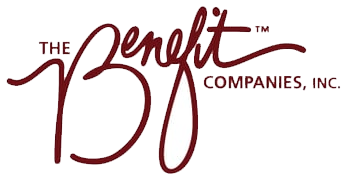As a newer client, I was especially impressed with BeneCo’s high level of organization and project management. They took time to listen to our goals, our ideas for reaching those goals and then developed several options that would help us determine the best way to go within budge..."
BeneCo of Wisconsin, Inc. Bottom Line Driven | Health Benefits Planning
BeneCo of Wisconsin, a member of The Benefit Companies Inc., has been dedicated to providing high quality employee benefit solutions for over 35 years. We can help you create an attractive and cost-effective benefits package, while keeping long-term solutions in mind. As a company, we serve more clients of a wider variety in Wisconsin than any other firm in the industry. Our expertise includes areas such as employee benefits for applicable large employers, Affordable Care Act eligibility and compliance, and benefits education and consultation. We strive to provide excellent service and an experience that you won’t find anywhere else.


BeneCo of Wisconsin Services & Resources
Why Choose The Benefit Companies?
The Benefit Companies has provided employee benefits and services to clients for over 50 years. Serving businesses both large and small, we have the technical abilities, 5-star rated staff, and products and services to design a solution that meets your needs. Reach out to see ways we can help you accomplish your goals today.
BeneCo does an excellent job helping us look out for the best interests from both the employee and employer perspective. We are grateful for the exceptional service and willingness to think outside the box, while maintaining an emphasis on compliance. The team at BeneCo does a tr..."
BeneCo does an excellent job helping us look out for the best interests from both the employee and employer perspective. We are grateful for the exceptional service and willingness to think outside the box, while maintaining an emphasis on compliance. The team at BeneCo does a tremendous job adding value to our benefit offerings, which allows us to offer the very best we can to employees presently and for years to come!
BeneCo is an invaluable business partner helping us navigate the very increasing complexity of the health insurance landscape. I specifically appreciate their deep knowledge base, creative solutions, and focus on total customer satisfaction. Whatever the situation or problem, Ben..."
BeneCo is an invaluable business partner helping us navigate the very increasing complexity of the health insurance landscape. I specifically appreciate their deep knowledge base, creative solutions, and focus on total customer satisfaction. Whatever the situation or problem, BeneCo knows the answer and is willing to invest the time to find a solution.
BeneCo from day one has been a tremendous asset to our team. Yes we consider them as part of our team. They can answer the tough questions and offer suggestions in dealing with complex issues that companies face in the health care market today. They have been instrumental in our ..."
BeneCo from day one has been a tremendous asset to our team. Yes we consider them as part of our team. They can answer the tough questions and offer suggestions in dealing with complex issues that companies face in the health care market today. They have been instrumental in our employee communication usually leading our employee health care meetings. BeneCo is always out front in regulation changes and assist us in the implementation of those new regulations. Our ability to keep health care cost under control in today’s environment speaks highly of the expertise BeneCo brings to the table. With BeneCo’s help, we continue to challenge the status quo of health care.
I truly appreciate my team at BeneCo and have enjoyed the experience of working with them. Their assistance with our annual renewal/open enrollment, including communication with employees as well as designing and implementing a benefits strategy, has been invaluable. They make su..."
I truly appreciate my team at BeneCo and have enjoyed the experience of working with them. Their assistance with our annual renewal/open enrollment, including communication with employees as well as designing and implementing a benefits strategy, has been invaluable. They make sure to keep us informed about compliance issues, trends in the industry and our own claims history. And my entire HR team appreciates the Benefits Advocate service. She does a great job helping us with any concerns and responding to and resolving employee claims issues.
Our company places a high value on Extreme Customer Service, and it’s wonderful to work with a team that shares that value!
BeneCo has been a trusted and valued partner of our company for many years. They always look out for our best interests in finding and evaluating health care insurance solutions that meet our company needs in a never ending challenging economic environment. We greatly value their..."
BeneCo has been a trusted and valued partner of our company for many years. They always look out for our best interests in finding and evaluating health care insurance solutions that meet our company needs in a never ending challenging economic environment. We greatly value their knowledge and advice and appreciate their ongoing support in not only selecting the best solutions for us, but also in providing the communication and advocacy needed for all company associates to be comfortable with our health care offerings.
BeneCo has been a valued partner for us! They have been instrumental in completing a comprehensive benefits analysis, making critical recommendations on what we can do to more effectively manage our benefits costs and increases and helping us develop creative solutions for addres..."
BeneCo has been a valued partner for us! They have been instrumental in completing a comprehensive benefits analysis, making critical recommendations on what we can do to more effectively manage our benefits costs and increases and helping us develop creative solutions for addressing benefits challenges and problems. They have truly gone above and beyond in response to our requests and I rely on them as valued and effective partners. I not only recommend, but encourage any company looking for a strong and valued partner to consider BeneCo!
Our group faces many challenges, with BeneCo on our side we overcome our challenges together. They stop, listen and work hard to resolve anything that comes up."
Our group faces many challenges, with BeneCo on our side we overcome our challenges together. They stop, listen and work hard to resolve anything that comes up.


 Payroll Client Access
Payroll Client Access